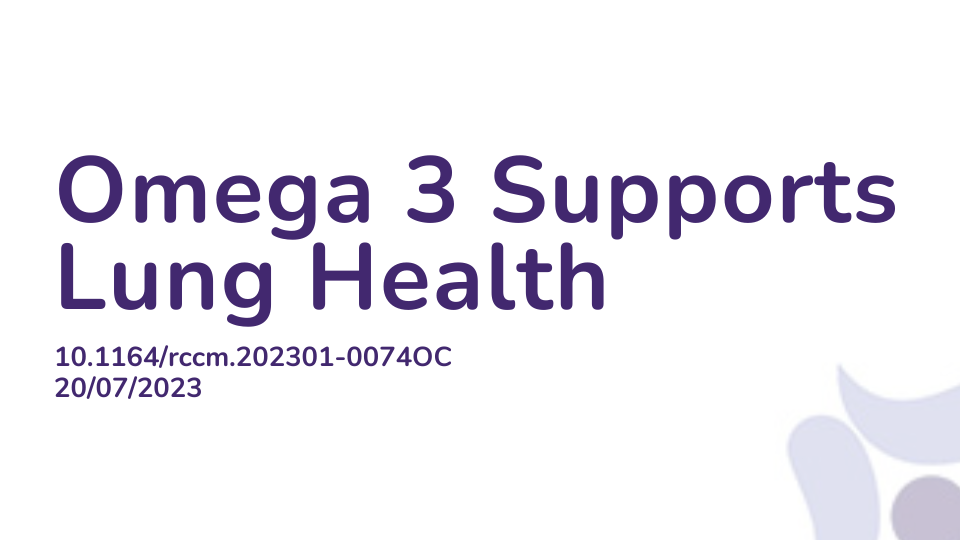Summary:
It is well documented in literature that inflammation contributes to chronic obstructive pulmonary disease and lung function decline, and that omega-3 fatty acids possess anti-inflammatory properties that could potentially benefit lung health. The aim of this paper was to explore connections between omega-3 fatty acids and lung function decline and airway obstruction. The study included 15,063 participants and found that higher omega-3 fatty acid levels, particularly docosahexaenoic acid (DHA), correlated with a smaller likelihood of lung function decline and a lowered incidence of airway obstruction. These associations remained consistent across different demographics, including a history of smoking and varied ethnicities.
Abstract:
Rationale: Inflammation contributes to lung function decline and the development of chronic obstructive pulmonary disease. Omega-3 fatty acids have anti-inflammatory properties and may benefit lung health. Objectives: Investigate associations of omega-3 fatty acids with lung function decline and incident airway obstruction in diverse adults from general population cohorts. Methods: Complementary study designs: (1) longitudinal study of plasma phospholipid omega-3 fatty acids and repeated FEV1 and FVC measures in the National Heart, Lung, and Blood Institute Pooled Cohorts Study, and (2) two-sample Mendelian Randomization (MR) study of genetically predicted omega-3 fatty acids and lung function parameters. Measurements and Main Results: The longitudinal study found that higher omega-3 fatty acid levels were associated with attenuated lung function decline in 15,063 participants, with the largest effect sizes for the most metabolically downstream omega-3 fatty acid, docosahexaenoic acid (DHA). An increase in DHA of 1% of total fatty acids was associated with an attenuation of 1.4 mL/year for FEV1 (95% confidence interval [CI] 1.1–1.8) and 2.0 mL/year for FVC (95% CI 1.6–2.4) and a 7% lower incidence of spirometry-defined airway obstruction (95% CI 0.89–0.97). DHA associations persisted across sexes, smoking histories, and Black, white and Hispanic participants, with the largest magnitude associations in former smokers and Hispanics. The MR study showed similar trends towards positive associations of genetically predicted downstream omega-3 fatty acids with FEV1 and FVC. Conclusions: The longitudinal and MR studies provide evidence supporting beneficial effects of higher levels of downstream omega-3 fatty acids, especially DHA, on lung health.
Article Publication Date: 20/07/2023
DOI: 10.1164/rccm.202301-0074OC



